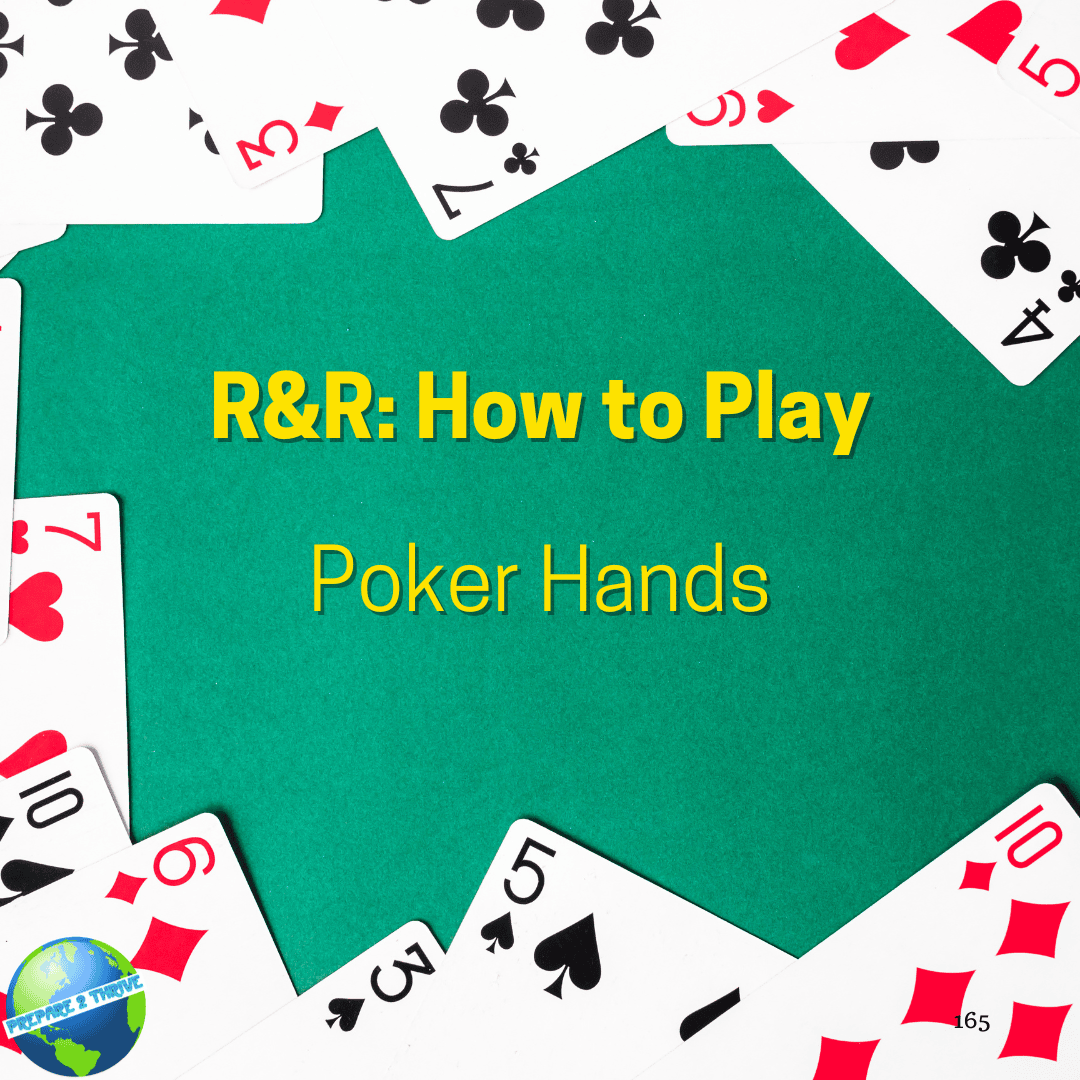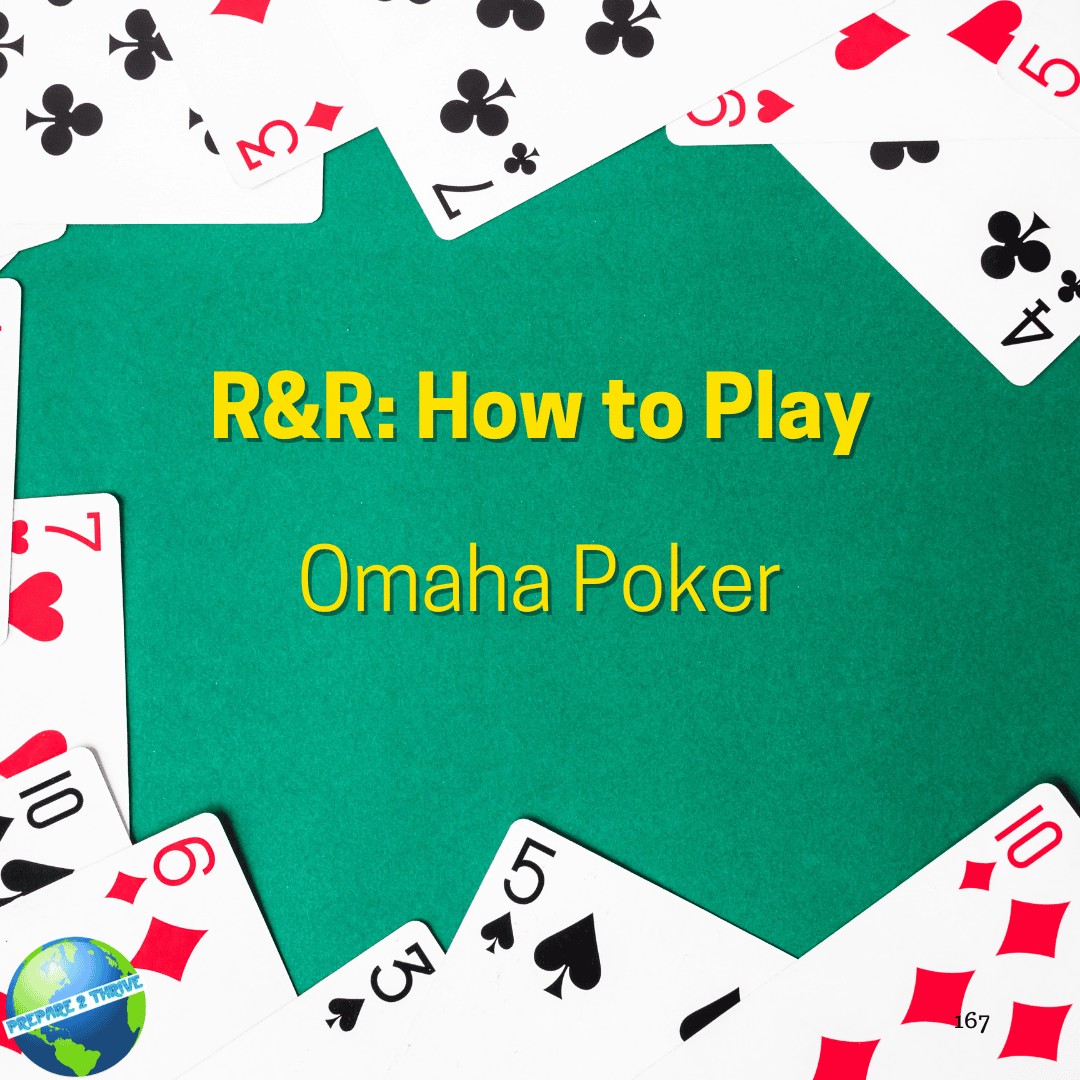Omaha is a popular poker variation played with 2 to 10 players. The objective is to win chips by having the best hand or by convincing opponents to fold.
Setup for Omaha:
- Use a standard 52-card deck for Omaha.
- Assign a dealer button that rotates clockwise after each hand.
- Determine the small blind and big blind positions for the current hand.
Objective for Omaha:
- The goal is to win chips or money by having the best hand at showdown or by bluffing your opponents into folding.
Round Play for Omaha:
- The game is played in a series of hands, and each hand consists of several steps.
- Players are dealt four private cards (hole cards) face down.
- The small blind and big blind positions post mandatory bets to start the action.
- Players take turns in a clockwise direction, with several betting rounds:
- Pre-flop: Players decide whether to call (match the big blind), raise (increase the bet), or fold (discard their hand).
- Flop: Three community cards are dealt face up in the center of the table. Another round of betting occurs.
- Turn: A fourth community card is revealed, and there is another betting round.
- River: A fifth and final community card is revealed, and a final round of betting occurs.
- Players must use two of their hole cards and three of the community cards to make the best possible hand.
- The hand concludes with a showdown if two or more players remain after the final betting round.
- The player with the best hand, according to standard poker hand rankings, wins the pot. If there's a tie, the pot is split between the tied players.
Winning:
- The player who accumulates the most chips or money over the course of the game or meets a specific win condition (like eliminating all opponents) is the winner.
Tips:
- Omaha is similar to Texas Hold'em but with the key difference of having four hole cards instead of two. This means there are more possible hand combinations, so hand selection and starting hands are crucial.
- Pay attention to the community cards and make the best use of your hole cards to create the strongest hand.
- Be mindful of your position at the table, as it affects your betting options and strategies.
Omaha is a strategic and exciting poker variation that requires a combination of skill, psychology, and tactics. It's popular in both casual home games and professional poker tournaments, offering a different dynamic from Texas Hold'em due to the additional hole cards. It is suitable for players with a good understanding of poker fundamentals.

Poker Hands
Poker hands are ranked based on the combination of cards a player holds. Here are the standard poker hand rankings from the highest to the lowest:
-
Royal Flush:
- A, K, Q, J, 10, all of the same suit.
- The highest-ranking hand, unbeatable in standard poker.
-
Straight Flush:
- Five consecutive cards of the same suit.
- For example, 9, 8, 7, 6, 5 of Hearts.
-
Four of a Kind (Quads):
- Four cards of the same rank.
- For example, four Kings and any other card.
-
Full House:
- Three cards of one rank and two cards of another rank.
- For example, three Jacks and two Fives.
-
Flush:
- Five cards of the same suit, not in consecutive order.
- For example, 10, 7, 6, 4, 2, all of Diamonds.
-
Straight:
- Five consecutive cards of different suits.
- For example, 9, 8, 7, 6, 5 of mixed suits.
-
Three of a Kind (Trips or Set):
- Three cards of the same rank.
- For example, three Queens and two unrelated cards.
-
Two Pair:
- Two sets of pairs.
- For example, two Kings, two Nines, and an unrelated card.
-
One Pair:
- Two cards of the same rank.
- For example, two Tens and three unrelated cards.
-
High Card:
- The highest card in your hand when no other hand is made.
- If no player has a pair or better, the highest card(s) in your hand determine the winner.
The player with the highest-ranking hand wins the pot. If two or more players have the same hand (e.g., both have a pair of Aces), the winner is determined by the kicker (the highest unpaired card) and, if necessary, the second kicker.
It's essential to understand the poker hand rankings, as they form the basis for evaluating the strength of your hand and making betting decisions. Keep in mind that some poker variations may have unique hand rankings or special rules, so it's important to be aware of the specific rules of the game you are playing.
